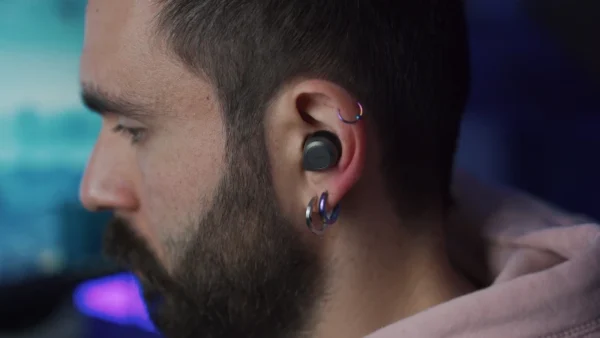Disclosure: This post may contain affiliate links, meaning we get a commission if you decide to make a purchase through our links, at no cost to you. Please read our disclosure for more info.
Last Updated on December 26, 2023 by Steal the Style
Choosing the right metal for your body piercing jewelry is a vital aspect that extends beyond mere appearance. Various metals possess distinct hypoallergenic qualities, durability, and compatibility with one’s body. Both experienced piercing aficionados and beginners should comprehend the nuances of metal selection for an enjoyable and secure piercing experience. In this guide, we will explore the wide variety of metals, their advantages, disadvantages, and elements to contemplate when selecting the ideal metal for your body piercing jewelry.
In This Post:
Hypoallergenic Properties
Metals with hypoallergenic properties are less prone to provoke allergic reactions or irritation upon skin contact. Titanium and niobium serve as exceptional examples of hypoallergenic metals popular among individuals with delicate skin or allergies. These metals exhibit biocompatibility and do not contain nickel, which is a prevalent allergen in numerous other metals. Choosing hypoallergenic metals considerably minimizes the likelihood of negative reactions, making them an excellent option for new piercings or those with pre-existing sensitivities.
Durability and Corrosion Resistance
The longevity of your body piercing jewelry depends on the metal’s durability and resistance to corrosion. Stainless steel and implant-grade surgical steel are known for their exceptional strength and resistance to rust. However, it’s important to note that even within stainless steel options, grades can vary. Implant-grade steel, such as ASTM F-138, meets stringent standards for biocompatibility and durability, making it ideal for long-term wear.
Precious Metals and Aesthetics
For those seeking a touch of elegance, precious metals like gold and platinum offer a luxurious appearance. Gold, available in various colors such as yellow, white, and rose, adds a touch of glamour to body piercing jewelry. However, caution should be exercised when selecting gold, as lower karat gold (14K or 18K) may contain alloy metals that can trigger allergies. Opting for higher karat gold (22K or 24K) or ensuring that the gold is nickel-free can mitigate these risks.
Silver, while beloved for its lustrous appeal, is not commonly recommended for body piercing jewelry due to its tendency to tarnish and its potential to cause staining on the skin. Titanium, on the other hand, offers a contemporary and sleek appearance with the added advantage of being lightweight.
Cost Considerations
The price range for body piercing jewelry can vary greatly depending on the metal chosen. Precious metals like gold and platinum tend to be more expensive due to their inherent value. Surgical steel and titanium offer a balance between affordability and quality, making them accessible options for a wide range of individuals. Balancing your budget with your desired metal’s properties is key to making an informed decision.
Compatibility with Piercing Types
Different types of piercings require different types of jewelry. For instance, certain metals might be better suited for oral piercings, where exposure to saliva and moisture is higher. Implant-grade surgical steel, PTFE (polytetrafluoroethylene), and Bioplast are some options that are often recommended for oral piercings due to their corrosion resistance and biocompatibility.
Factors to Consider
If you have a history of metal allergies, it’s best to choose hypoallergenic metals such as titanium, niobium, or high karat gold. Make sure to consider the particular type and location of the piercing to select a metal capable of withstanding those conditions. Additionally, find a metal that fits your budget while still meeting your required quality and safety standards. Contemplate how long you plan to wear the jewelry, opting for durable metals like surgical steel and titanium for long-term use. Lastly, take into account the desired appearance of your jewelry and determine if aesthetics should be prioritized above other factors.
Selecting the right metal for your body piercing jewelry is a pivotal step in ensuring both your comfort and safety. The array of metals available allows for a personalized choice that caters to your sensitivities, preferences, and desired aesthetics. Prioritizing hypoallergenic properties, durability, and compatibility with your piercing type will lead to a positive and comfortable piercing experience. Whether you’re drawn to the elegance of gold or the reliability of implant-grade steel, your choice of metal plays a pivotal role in your journey of self-expression and adornment.

